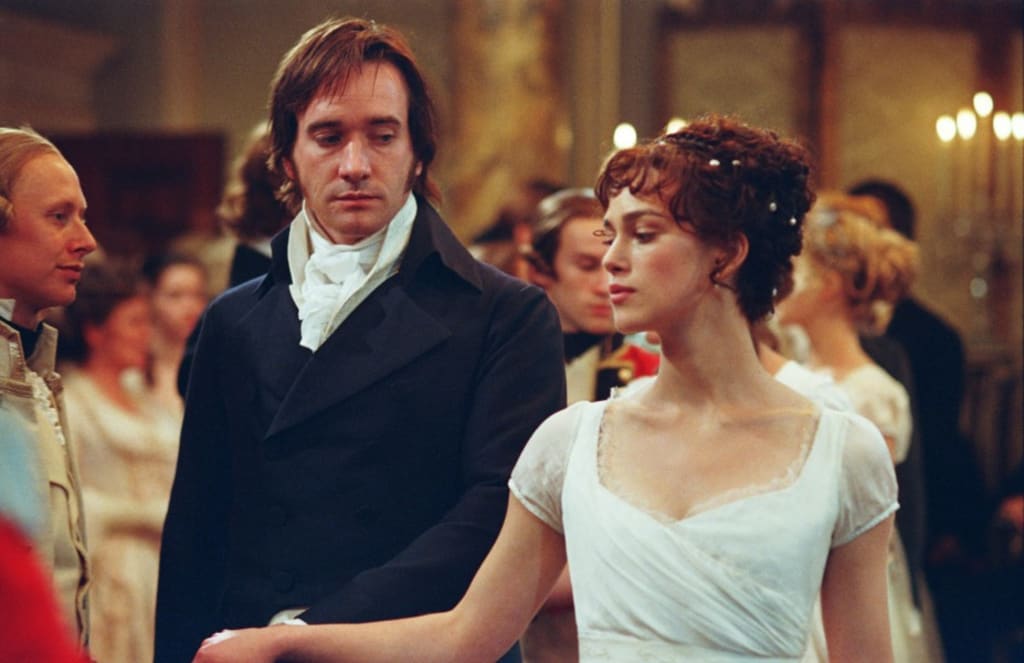Novels You Should Read for Summer – Isabel T
Do you ever get bored lounging around for 9 weeks with nothing to do? Ever wish you could fulfil this time in a both entertaining yet academically benefitting way? You and I both know that you may have books strewn about your house collecting dust, with a desire to be read. Although most us would rather do anything else than to read 587,287 words of War and Peace, I guarantee you that these 5 novels (with one play) are worth your time. *Major spoiler warnings*
Persuasion by Jane Austen

Starting off strong with a classic romance was one of Jane Austen’s last works. What I love most about this novel is its truthfulness of human nature in regards to relationships and its harsh reality within the 19th century, but also applicable to modern society. The relationships between the characters are never exaggerated or pitched unrealistically. Worth of your time if you’ve had enough of the ‘love at first sight’, sloppy romances seen today.
The novel starts through context of the characters, namely Anne Elliot’s persuasion to refuse her lover’s proposal – Captain Wentworth – by the Elliot’s advisor due to his unsatisfied fortune. After 8 years, the Captain returns to the Elliot’s household, but with detached and polite manners towards Anne, leading her to assume he has lost his love for her. Anne, instead if formally introduced to her cousin, Mr Elliot and he makes clear of his intention to marry her (normal for that time, don’t worry). Likewise, it seems that the Captain intended to do the same with a woman named Louisa Musgrove. However, Anne learns of Mr Elliot’s plan to marry Anne solely to ensure his inheritance as heir. Despite Anne’s dismay, she learns that the Captain had no promise in marrying Louisa, and has increased his wealth over the 8 years. However, still believing that Anne has fallen for Mr Elliot, he sends her a love letter confessing his ceaseless love for her, in which Anne is thrilled by and quickly accepts his proposal. Anne receives approval for the marriage and overcomes her regret for surrendering to the persuasion she faced 8 years ago.
The Great Gatsby by F. Scott Fitzgerald
The Great Gatsby composes of bold factors: fame, wealth, popularity and failure. Fresh out of bustling New York City, with Gatsby as the obvious ‘American Dream’, Fitzgerald creates a novel that clearly emphasises the human trait of devotion, especially to the wrong person/idea. This novel cleverly uses so many contrasting human emotions in which the story seems to work in perfect chaos. All time favourite. The film adaptation does the book complete justice in my opinion.
Nick Carraway moves to New York and his mysterious new neighbour is Jay Gatsby, who throws lavish parties. Nick has many social connections, including his cousin, Daisy Buchanan, who he meets with her husband, Tom. The both introduce Nick to Jordan Baker, who Nick begins a relationship with. Jordan tells Nick about Tom’s secret admirer, Myrtle, and they all meet at a party, in which Myrtle taunts Tom about Daisy, in which Nick breaks her nose for. Nick then meets this mysterious Gatsby and learns more about him, including his undying love for Daisy. The parties he hosts are purely so Daisy would be impressed, and Jay wants Nick to set up a lunch between them, where Jay will surprise Daisy and try to reignite their connection. After this, their love has rekindled and they begin their affair, in which Tom becomes suspicious of. He confronts Gatsby, and tells him about his and Daisy’s history with each other. After this, Daisy realises her devotion for Tom, and goes back home. After driving back, they notice that Gatsby’s car has crashed and killed Myrtle, and that it was Daisy who was driving the car. However, Tom tells Myrtle’s husband that it was Gatsby who killed her, her husband then shoots Gatsby dead after hunting him in his house. Nick arranges a funeral for Gatsby, ends his relationship with Jordan and moves back to Midwest to escape the events that happened. He reflects that Gatsby’s idea of Daisy was corrupted by wealth and fortune.
Romeo and Juliet by William Shakespeare

A classic. Even though it is widely known for the 1999 movie adaptation (thanks Leo), its original play form written by Shakespeare is one of my absolute favourites. Don’t let the obscure language throw you off, as it is one of Shakespeare’s best tragedies. One of the best features is the rhyming couplets that Romeo and Juliet continue for each other, creating one of the most famous love stories to exist. If you don’t mind Elizabethan language, this is an absolute must read, which contains much more than a romance story. Special thanks to Ms Stone for choosing this as our GCSE play.
As you probably know well, the play involves a pair of star-crossed lovers; Romeo Montague and Juliet Capulet, who coined the term ‘love at first sight’. Conveniently, the Montague and Capulet families are mortal enemies and take up any chance to challenge one another for incredibly futile reasons. But when Romeo and Juliet meet, they instantly know that they must wed, but locking their secret away from their families. When Juliet is forced to marry Paris (RIP), she creates a plan to fake her death so she can run away with Romeo. Romeo is unaware of this plan, so upon hearing word of her ‘death’, he becomes outraged and ultimately kills Paris to attend Juliet’s tomb. Romeo is prepared to swallow poison in order to join Juliet in the afterlife, and spends his last moments with her, unaware of her undead state. When Juliet wakes up to find her love dead next to her, she makes no hesitation to stab herself with a dagger to do what Romeo wanted to; join her in the afterlife. Both young lovers die and the city of Verona blame their families. They reconcile and fate is fulfilled.
Tender is the Night by F. Scott Fitzgerald

Another Fitzgerald mention, but instead about a highly recommended romantic tragedy. I honestly feel for the Divers, who have a highly problematic dynamic disguised through a mask of sophistication. Rosemary’s naivety spirals into the tragic course of events and the inevitable fall of an artificial exterior put on by the Divers. Set in the French Riviera, the novel perfectly represents the fractured social society that is described, as well as the fragility of man.
Rosemary, a beautiful 18 year old girl is on holiday in the French Riviera and meets Dick Diver, an American psychologist, whom she falls in love with. However, Dick has a wife called Nicole who are perfect exemplars of sophistication. Rosemary becomes part of this sophisticated social group, Dick begins to mirror the feelings that Rosemary has for him. After a friend of the Divers accidently kills a man, Rosemary discovers Dick comforting Nicole as she has a breakdown, this forces Rosemary to revaluate her attraction and feelings and she moves back to America. The narrative shifts to the past, where the events that lead to Nicole and Dick’s wedding are described. Dick attended Yale and moved to Vienna to study clinical psychology. During this time, he met 16 year old Nicole who was a Chicago heiress. However, Nicole had developed a fear of men. Both eventually fall in love and become married. (present day) Dick is accused of infidelity of a former patient, by which Nicole becomes outraged and runs their car off the road. After this, Dick receives news that his father had died and returns to America, where he meets Rosemary in a hotel. They reignite their love that they abandoned several years earlier. After this, Dick realises he is losing grip on his world, where becomes drunk, beat up and imprisoned. Nicole has an affair with a man named Tommy and asks for a divorce. He agrees, and realises Nicole has finally overcome her fear. He returns to America and the novel is abruptly stopped here, suggesting he is still there.
Pride and Prejudice by Jane Austen

If you have not heard or watched the infamous film by Joe Wright, you are seriously living under a rock. With a second Austen novel within the list, another classic romantic novel truly is a must-read. The heart of this novel is within the idea of overcoming obstacles, even those that may be unconscious (aka Elizabeth’s prejudices) is the final, yet most difficult part to overcome. I think this book deserves no further explanation for my liking.
The novel revolves around the Bennet family, composed of 5 daughters who their mother wishes them to be married. One of the sisters, Jane, is taken with Mr Bingley, a young, wealthy gentleman. Mr Bingley’s close friend Mr Darcy is displeased with the social season and refuses to dance with another Bennet daughter, Elizabeth, leading her to form prejudices towards him, as arrogant and disagreeable. However, throughout the social season, Mr Darcy becomes subsequently attracted to Elizabeth’s charms. Due to the Bennet sisters’ lack of male heir, their property is due to be inherited by Mr Collins, who also bravely proposes to Elizabeth, and wounds his pride by rejecting him. As Mr Collins finds another wife, Elizabeth is reminded of her dire need to marry to confirm financial security. During Spring, Mr Darcy makes a shocking proposal to Elizabeth, but is quickly turned down due to her unappealable attitude on Darcy’s personality, and his discouragement of Mr Bingley to marry Jane, saying that he did not believe their romance was genuine. Darcy writes a letter to Elizabeth truthfully explaining his actions, leading her to revaluate her feelings towards him. Not ling after, Bingley resumes his courtship with Jane, Elizabeth and Darcy exchange their revelated feelings, in which Elizabeth accepts his proposal after learning about Darcy’s true character.















Post Comment
You must be logged in to post a comment.